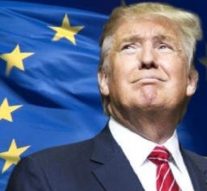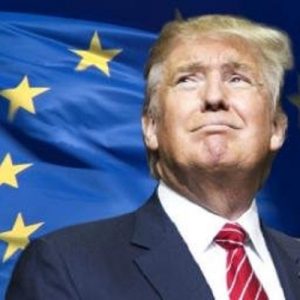
Trump election in the US: crisis or opportunity for the EU ?
Employment and Social Affairs 25 November 2016Jobs growth remains a key priority for Americans even as the unemployment rate in the United States has returned to pre-recession levels. During and soon after the elections in the US the wider attention of the world public opinion has been mainly focused on presidential candidates stances as regard foreign policy, migration, populism and sexism.
But a complete analysis could not avoid to consider that a crucial aspect of Donald Trump victory in the presidential race was due to economic and jobs related issues, the most pressing ones for American citizens. One of the most clearest stance in Trump’s electoral campaign was indeed the focus on the “need to bring back jobs” that have been outsourced in the past years, particularly in Mexico, China and Japan. Trump said he would bring back jobs by imposing tariffs on imports from Mexico and China, as a move that would benefit companies based in the US despite of foreign-based ones.
Furthermore one of Trump’s top campaign promises has been a trillion

www.jewishpress.com
-dollar program investment plan to rebuild highways, tunnels, bridges and airports in the US; once more the president-elect has highlighted that this infrastructure investment plan will create “millions” of jobs.
Cutting taxes and increasing federal spending are measures that might stimulate economic growth in the short period, but as declared by the head of the US central bank, Janet Yellen, is too soon to predict the likely economic impact of Donald Trump’s election as the next president of the United States. So it could be even more difficult to predict the economic impact on the EU, although the Transatlantic Trade and Investment Partnership (Ttip) with Brussels plays a key role and here there in no place for many doubts the Us election’s outcome will have negative consequences on the already stagnant negotiation. “TTIP will probably be in the freezer for quite some time and then what will happen when it is defrosted, I think we will need to wait and see,” EU Trade Commissioner Cecilia Malmström said after Trump election.
Trump has strongly expressed skepticism on the trade deals the US has made in recent decades, criticizing the North American Free Trade Agreement (Nafta), the Trans-Pacific Partnership (Tpp) and Ttip with the EU. He strongly insisted on the fact that those agreement are not in the best interest of the US citizens. It doesn’t automatically means that he is against free trade at all but is really unlikely that he would keep on negotiating those multilateral agreement; Trump would rather try to enhance bilateral relations with some countries, even with some country inside the EU.
So it is likely that TTIP would be abandoned with inevitable consequences also on the EU economy.
But to be fair, it could be said that from Europe’s perspective, the West was already on shaky ground. Even as Brexit demonstrated there is a wider problem the EU has to deal with: the spread of populist movement that highlight also some bottlenecks of our common project. On the one hand, in the defense and military sector, the possibility that the US will be less engaged in NATO and in international affairs, could accelerate the implementation of the EU’s Common Security and Defence Policy. On the other hand this is equally valid when it comes to economic growth and the reduction of youth unemployment, where Europe has a lot of space to work on reducing its own shortcomings waiting for the real new face of Washington administration. US isolationism is not a positive news for Europe, but at the meantime it highlights the opportunity to bear our own responsibilities first.



